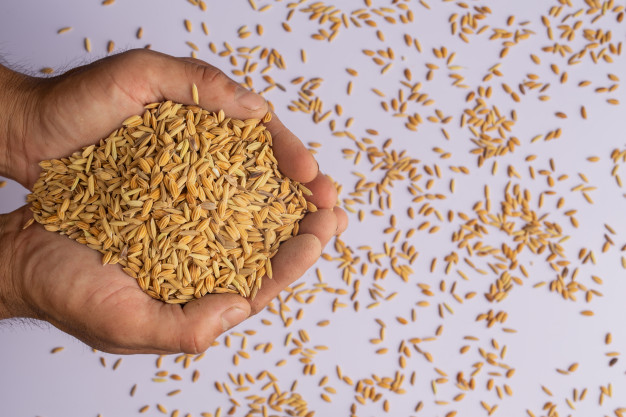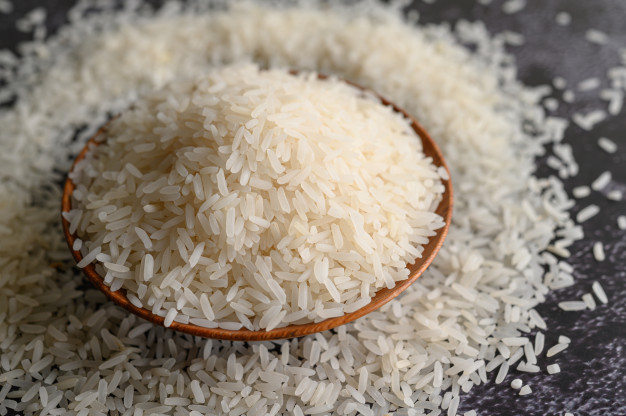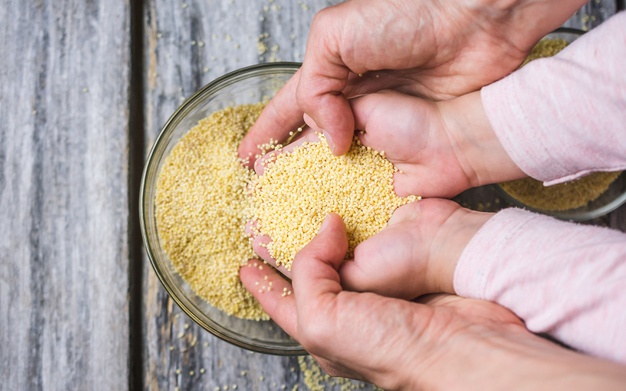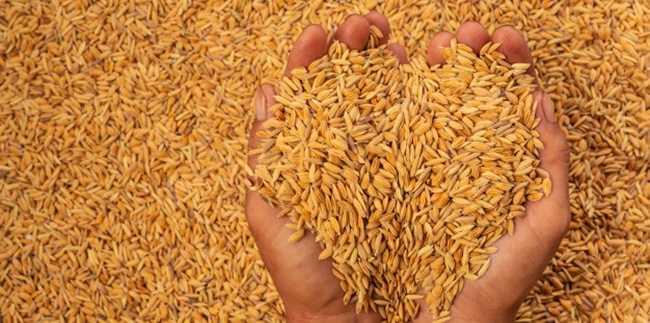Kapanlagi.com - In Ramadan, all Muslims have an obligation to fast. However, Islam eases some people from fasting in Ramadan but by replacing it by paying for fasting fidyah Ramadan. The meaning of fidyah is one of the rules for paying for fasting Ramadan based on a certain measure.
The Ramadan fasting fidyah can be replaced or paid by feeding the poor. To pay for fasting fidyah Ramadan, it can be adjusted based on the number of fasts missed. This means that when a person misses ten Ramadan fasts, they can replace the Ramadan fasting fidyah by feeding ten poor people.
ALSO READ: Complete Qadha Fasting Intention Reading Along with Its Procedures
In addition to understanding the meaning of fidyah as a rule for paying for Ramadan fasting based on a certain measure, you can also learn about the intention and procedures. Here are the methods and rules for paying for fasting fidyah Ramadan according to Islamic measures.
1. Understanding Fidyah

(credit: pexels)
As previously explained, fidyah means one of the rules for paying Ramadan fasting based on a certain measure. When someone misses ten days of Ramadan fasting, they can replace it with fidyah by feeding ten poor people.
However, fidyah applies to certain people where there are rules or conditions that must be met. The command and conditions for paying fidyah are also found in the word of Allah SWT, namely Surah Al-Baqarah verse 184 which means:
"(that is) for a few days. But for those who are sick or on a journey, the same number of other days (are to be made up). And those who can do it with difficulty (e.g. an old man), have (a choice either to fast or) to feed a poor person. But whoever does good of his own accord, it is better for him. And that you fast is better for you if only you knew." (Q.S. Al Baqarah: 184)
Thus, it can be concluded that fidyah means a fine that must be paid by a Muslim for leaving an obligation or violating a provision. In terms of fasting, fidyah means a Muslim pays a fine for leaving his obligation to perform Ramadan fasting.
2. Criteria for Paying Fidyah

(credit: freepik.com)
Not only knowing the meaning of fidyah, but KLovers also need to know the criteria for who can and should pay fidyah. As previously explained, when someone breaks their Ramadan fast for a certain reason, they are obligated to make up for it or pay fidyah.
Because Ramadan fasting is a mandatory fast that cannot be left except under certain conditions. In this case, there are several criteria that are allowed to pay Ramadan fasting with fidyah as follows:
1. Elderly parents who trigger conditions that make it impossible to perform Ramadan fasting. Where elderly parents are allowed to pay fidyah for Ramadan fasting.
2. Seriously ill people with a low chance of recovery are allowed to pay fidyah.
3. Pregnant and nursing mothers are allowed to pay fidyah because it is not possible to fast due to concerns about their own health and the baby's health (on the doctor's recommendation).
4. People who are late in paying their fast until the following Ramadan month without an excuse can replace fidyah and make up for the missed fast according to the amount left.
Based on the above points, it can be concluded that fidyah for Ramadan fasting is allowed for people who cannot fast or make up for their fast throughout their lives. As for pregnant and nursing mothers, there is an opinion that they can replace it with qadha fasting and fidyah fasting after pregnancy, postpartum, or nursing according to the amount left.
3. Intention for Fidyah Fasting

(credit: pexels)
For KLovers who want to perform fidyah, there is an intention that must be done. Here is the intention for fidyah during Ramadan fasting based on its category:
1. Intention for Fidyah Fasting for Seriously Ill and Elderly
"Nawaytu 'an 'ukhrij hadhih alfidyat l'iiftar sawm ramadan fardan lilahi taala"
Meaning: I intend to pay this fidyah for breaking the fast in the month of Ramadan, obligatory because of Allah.
2. Intention for Fidyah for Pregnant or Nursing Women
"Nawaytu 'an 'ukhrij hadhih alfidyat in 'iiftar sawm ramadan lilkhawf ilaa waladi ilaa fardan lilahi taalaa"
Meaning: I intend to pay this fidyah for breaking the fast in Ramadan because I am afraid for the safety of my child, obligatory because of Allah.
3. Intention for Fidyah for Deceased Fasting Person (by Guardian/Heir)
"Nawaytu 'an 'ukhrij hadhih alfidyat in sawm ramadan fulan bin fulan fardan lilahi taalaa"
Meaning: I intend to pay this fidyah for the obligation of fasting in Ramadan for Fulan bin Fulan (mentioning the name of the deceased), obligatory because of Allah.
4. Intention for Fidyah due to Late Qadha of Ramadan Fasting
"Nawaytu 'an 'ukhrij hadhih alfidyat in takhir qada' sawm ramadan fardan lilahi taalaa"
Meaning: I intend to pay this fidyah for the obligation of making up for the late qadha of Ramadan fasting, obligatory because of Allah.
4. The Rules of Paying Fidyah

(credit: freepik.com)
There are important rules that Muslims should know when paying fidyah. This is because there are specific amounts to pay according to the number of fasts missed during Ramadan. Here are the major rules of paying fidyah according to Islam based on the opinions of scholars.
According to merdeka.com, the recommended fidyah amount according to the Malikiyah and Syafiiyah scholars is 1 mud of wheat for each day of fasting missed during Ramadan.
Meanwhile, according to the Hanafiyah scholars, the fidyah amount is 1 sho of dates or 1 sho of barley, or sho hinthoh (wheat grains). This can be summarized as follows according to BAZNAS regarding the amount of fidyah to pay for Ramadan fasting:
1. According to Imam Syafii and Imam Malik, the major fidyah amount to be paid is 1 mud of wheat, which is approximately 6 ounces = 676 grams = 0.75 kg or the size of a raised hand during prayer.
2. According to Imam Hanafi, the major fidyah amount is 2 mud or 1/2 sha of wheat. This means that 1 sha is equivalent to 4 muds = about 3 kg, so 1/2 sha is 1.5 kg. The second major rule is usually used for those who pay fidyah in the form of rice.
Meanwhile, according to the Hanafiyah scholars, fidyah can also be paid in the form of money according to the price or measurement of staple foods, which is 1.5 kg of staple food per day, then converted to rupiah.
5. Rules for Paying Fidyah with Money

(credit: freepik.com)
Intended as a substitute for fasting, the way to pay for Ramadan fasting fidyah can be done in several ways that Muslims need to know. The ways to pay for fidyah are as follows:
1. Make food and distribute it or invite poor people according to the number of fasting days left.
2. Give uncooked food to the poor, but it is recommended to provide food that can be used as a side dish. When leaving fasting for 20 days, fidyah can be paid to 20 poor people.
However, there is also an opinion that fidyah can be paid to only one poor person, but some scholars do not recommend it. Nevertheless, Al Mawardi said, "It is permissible to pay fidyah to one poor person at a time. There is no dispute among scholars about this."
Regarding these differences, it is better to follow the majority opinion that can be used to pay for Ramadan fasting fidyah. Meanwhile, according to Imam Ar Ramli in Fatawa Ar-Ramli, there are several details about how to pay for fidyah which are quoted from liputan6.com:
1. Fidyah at the end of Ramadan can be paid if the person is unable to fast from the beginning until Ramadan is almost over. Then fidyah can be paid once with the number of fasts left during Ramadan.
2. Fidyah for each missed day of fasting can be paid after dawn. For example, when a person cannot fast on the first day of Ramadan, it can be paid when the first dawn of Ramadan rises.
3. Fidyah after Ramadan is over can be paid by installment every day until the number of missed fasts is fulfilled.
6. Fidyah Payment Time

(credit: pexels)
The time for paying fidyah means it can be done immediately when not fasting or until the end of the month of Ramadan. However, it should be noted that fidyah cannot be performed before Ramadan or when entering the month of Sha'ban. Because a person can pay for fasting fidyah Ramadan when they have entered Ramadan until after Ramadan ends.
That is the explanation of the meaning of fidyah, along with the method and rules for paying for fasting fidyah Ramadan. Hopefully, the above explanation of the meaning of fidyah can help you understand the implementation of paying for fasting fidyah Ramadan.
Source: Merdeka.com, liputan6.com, baznas.go.id
(kpl/gen/nlw)
Disclaimer: This translation from Bahasa Indonesia to English has been generated by Artificial Intelligence.


















